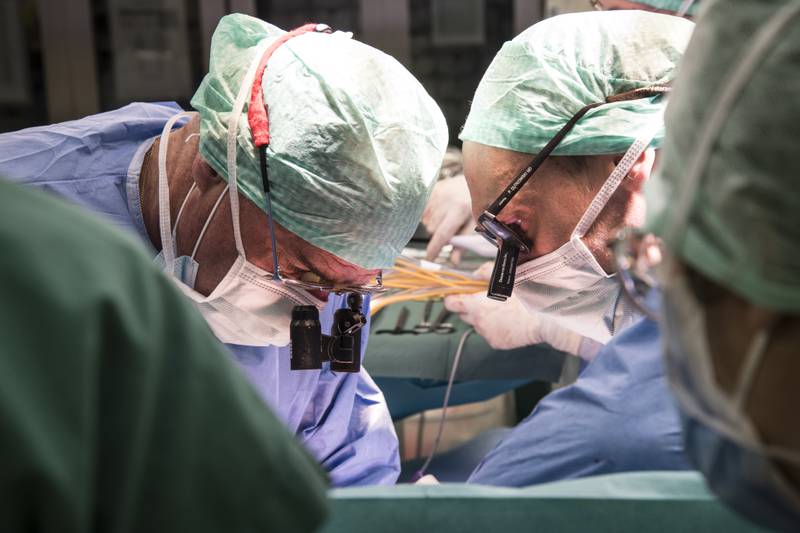Damaged liver treated for three days and transplanted successfully

A damaged human liver has been successfully transplanted after being kept viable on a machine for three days, researchers have said. The damaged organ was treated and preserved on a machine before being transplanted into a liver cancer patient where it functioned normally, according to findings published in the Nature Biotechnology journal.
Under normal circumstances, organs can be stored for only 12 hours. Researchers say the development may save lives because it will increase the number of livers available for transplant and allow surgery to be scheduled days in advance.Read More : For transplants, COVID complicates the race against time Prof Pierre-Alain Clavien, at University Hospital Zurich, showed the liver can be preserved for three days outside of a body using a machine performing a technique known as ex situ normothermic perfusion. That means the organ is supplied with a blood substitute at normal body temperature while outside the body.
“Our therapy shows that by treating livers in the perfusion machine, it is possible to alleviate the lack of functioning human organs and save lives,” Prof Clavien said.
The machine mimicked the human body as accurately as possible to provide ideal conditions for human livers. According to the study, the team prepared the liver with various drugs, making it suitable for transplant even though it was originally not approved for the procedure.
The liver was transplanted into the patient, who was suffering from several serious liver conditions, including end-stage liver disease and liver cancer. The transplanted organ functioned normally with minimal injury, as blood flow from internal blood vessels returned, the researchers found.
The patient was able to leave hospital a few days later. “I am very grateful for the life-saving organ,” he said. “Due to my rapidly progressing tumour, I had little chance of getting a liver from the waiting list within a reasonable period of time.”
There is a growing gap between demand for liver transplants and the small number of available organs. As clinical practice is to store donor livers for no more than about 12 hours on ice before transplantation, the number of organs that can be matched to transplant recipients is also limited.
The new technique opens the possibility that machines can keep livers healthy and viable for days rather than hours. Mark Tibbitt, professor of macromolecular engineering at ETH Zurich, said: “The interdisciplinary approach to solving complex biomedical challenges embodied in this project is the future of medicine. “This will allow us to use new findings even more quickly for treating patients.”
Under normal circumstances, organs can be stored for only 12 hours. Researchers say the development may save lives because it will increase the number of livers available for transplant and allow surgery to be scheduled days in advance.
“Our therapy shows that by treating livers in the perfusion machine, it is possible to alleviate the lack of functioning human organs and save lives,” Prof Clavien said.
The machine mimicked the human body as accurately as possible to provide ideal conditions for human livers. According to the study, the team prepared the liver with various drugs, making it suitable for transplant even though it was originally not approved for the procedure.
The liver was transplanted into the patient, who was suffering from several serious liver conditions, including end-stage liver disease and liver cancer. The transplanted organ functioned normally with minimal injury, as blood flow from internal blood vessels returned, the researchers found.
The patient was able to leave hospital a few days later. “I am very grateful for the life-saving organ,” he said. “Due to my rapidly progressing tumour, I had little chance of getting a liver from the waiting list within a reasonable period of time.”
There is a growing gap between demand for liver transplants and the small number of available organs. As clinical practice is to store donor livers for no more than about 12 hours on ice before transplantation, the number of organs that can be matched to transplant recipients is also limited.
The new technique opens the possibility that machines can keep livers healthy and viable for days rather than hours. Mark Tibbitt, professor of macromolecular engineering at ETH Zurich, said: “The interdisciplinary approach to solving complex biomedical challenges embodied in this project is the future of medicine. “This will allow us to use new findings even more quickly for treating patients.”
Source: www.thenationalnews.com
